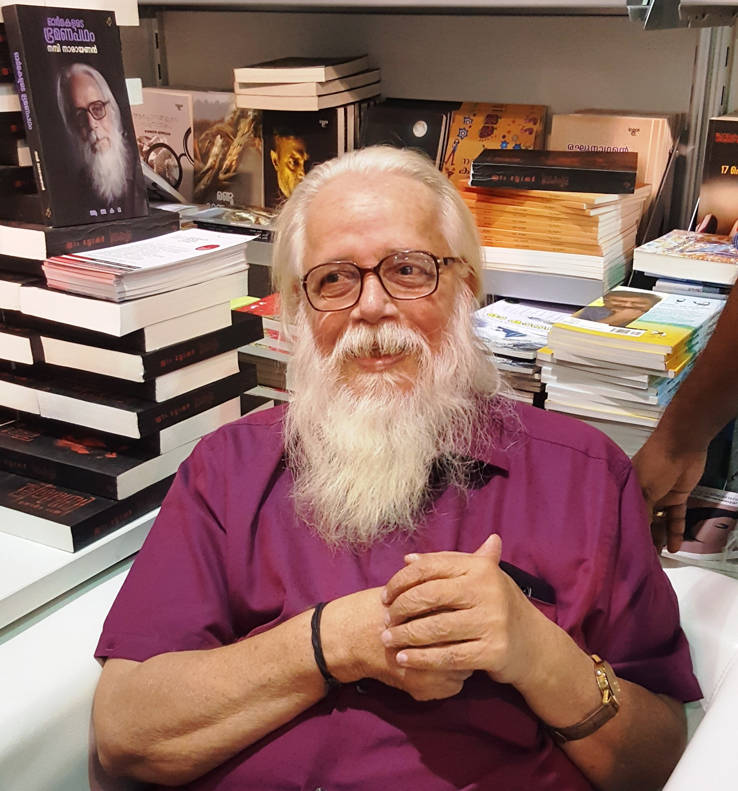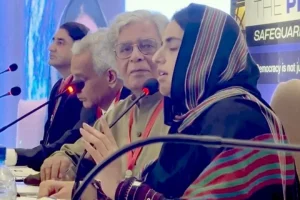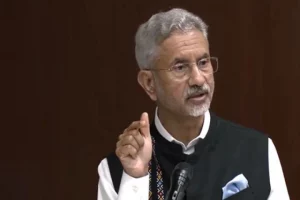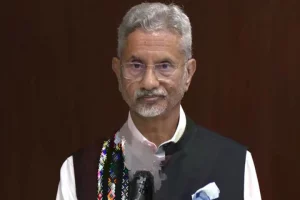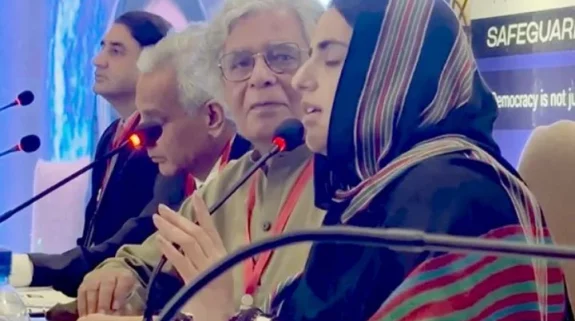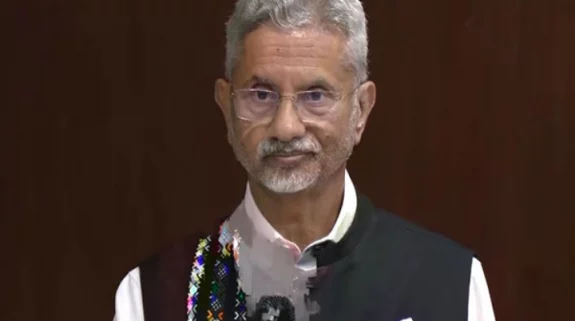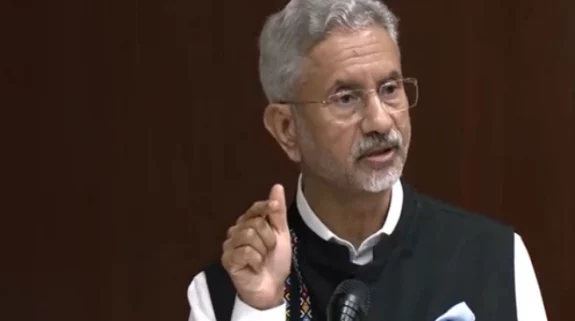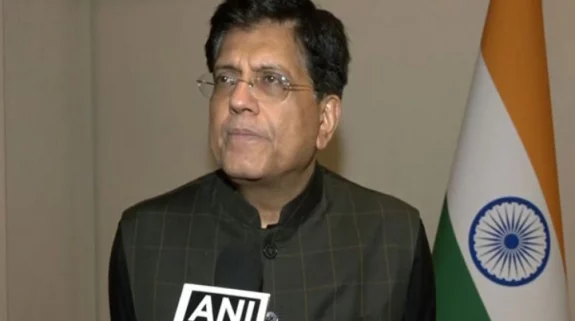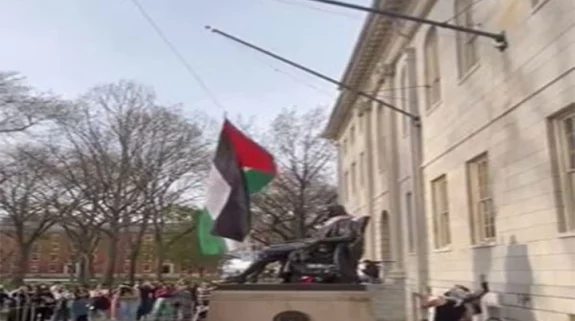On Thursday, a trailer of a multilingual film Rocketry: The Nambi Effect was released. This is a biographical film based on the life of Dr. S. Nambi Narayanan, former scientist and aerospace engineer of the Indian Space Research Organisation (ISRO) who was accused of espionage in 1994.
The biopic is based on the life of the former rocket scientist at the Indian Space Research Organisation (ISRO) Nambi Narayanan. Head of ISRO’s cryogenics division, he was falsely accused of espionage and arrested in 1994. The trailer presents Nambi Narayanan (played by Madhavan) as an ‘arrogant genius’ who wants to put India on the map when it comes to the commercial satellite market. The rushes showcase how his patriotism became the cause of his downfall. Narayanan was arrested for selling plans of India’s space programme to foreign countries. All charges against him were dismissed by the Supreme Court in 1998.
What has followed is Narayanan’s dogged pursuit, which included knocking on the door of the Supreme Court of India, to dock those police officers who have been guilty to ruining his life and reputation. A closure to the former scientists stunning riposte for justice may soon to be on the way. On Saturday, the Supreme Court appointed DK Jain Panel submitted its report on scientist Nambi Narayanan's illegal arrest—the same day when the trailer of the film was released. However, the report has been put in a “sealed envelope”. The findings are therefore not known yet.
I called up Nambi Narayanan today morning after a long gap of four years. I last spoke to him in 2017. He then wanted to know about the findings. Is the court going to prosecute those police officers who ruined his career and reputation?
“But battle is not finished till those responsible are punished and I am happy that the judiciary did not let me down. Now the committee has investigated the matter and submitted the report let us wait for the report.” He added: “Yes, I first got the Padma award, now a film. My name became famous because of 'spying' charges. Now I am glad that my contribution has been recognised by the government and the people,” said Narayanan. The exonerated former space scientist was awarded the Padma Vibhushan by the Modi government in 2019.
Is he happy about the film? The scientist says “let people know about my sufferings, tortures. But please let me know about the findings. I want those officers to be punished by the law.”
While it is easy to watch the drama on screen, it is not easy to feel how much the real Nambi Narayanan has gone through for the past 27 years. I remember the newspaper's headlines after the arrest of Nambi Narayanan on November 30, 1994: ISRO Spy Case – top Scientist Arrested. The case was all over the national and vernacular press and became a potboiler of ‘sex, spies and rocket.’
I did try to report the case but could not get much since all the players were in Thiruvananthapuram in Kerala and all ‘exclusives’ were in Malayalam papers.
After two months, my friend Nalla Mutthu ( now a famous wildlife documentary maker on tigers) asked me if I was still interested in the ISRO spy case. He told me the main accused of the case Nambi Narayanan is his uncle and now he is on bail, can speak to me. I said sure but would like to talk to all three “accused” scientists on camera.
After a few days I was in Thiruvananthapuram. I interviewed Nambi Narayanan, S Kumaran and Chandrashekhar. Prior to arrest, Narayanan was working with ISRO as director of cryogenic project, his deputy director was D Sasikumaran. K Chandrasekhar. S K Sharma was the Indian representative of a Russian space agency.
Narayanan, the then director of cryogenic project at ISRO, was arrested along with deputy director D. Sasikumaran and the Indian representative of a Russian space agency, K Chandrasekhar. S K Sharma, a labour contractor and two Maldivian women – Fouzia Hasan and Rasheeda – were also arrested. While Narayan, Kumaran and Chandrashekhar were out on bail after two months, Fouzia and Rasheeda were still in jail.
Before his arrest, Narayanan was playing a critical role in the development of Polar Satellite Launch Vehicle (PSLV), Geosynchronous Satellite Launch Vehicle (GSLV), which required cryogenic engines, which the Russians, facing US sanctions, had declined to provide. Working in the cryogenics division at ISRO, Narayanan was among the first to foresee the need for liquid fuelled engines for ISRO’s future civilian space programmes.
But all glory was gone when he and others were arrested.
All three ‘accused’ told me that how they were tortured and humiliated by the Kerala police and its CID team. I did try to meet those police officers of Kerala police including the DGP but all remained tight lipped. I spoke to the team members of the Central Bureau of Investigation (CBI) which had taken over the case from the state police. I spoke to the then Chief Minister K. Karunakaran who gave me ‘off record’ ‘indications’ about the fake case made by the state police. The then IG police Raman Srivastava name was also in the police chargesheet and he was put off duty. It was also alleged Srivastava had passed on classified info on Aeronautical Defence Establishment, Bengaluru, to outsiders.
The IG of Special Investigation Team (SIT) of Kerala police told me that he was certain about the case that Narayanan and Sasikumaran had been trapped in a sex racket involving the Maldivians and had given them secret ISRO papers.
I was sure that something was wrong with this case.
What followed was a long legal battle that ended in May 1996. The CBI finally filed a report before the chief judicial magistrate saying that the espionage case was false and that there was no evidence to back the charges. The court accepted the report and discharged all the accused but the CPI(M)-led government that had just come to power decided to play its own game and ordered further investigation till finally, in May 1998, the Supreme Court quashed the Kerala government’s move for a fresh probe.
The case also had its political fallout, with a section in the Congress targeting the then Chief Minister, the late K. Karunakaran over the issue, which eventually led to his resignation. The scientists were arrested when the Congress was heading the government in Kerala.
The Kerala governments have since protected the rogue police officers and have dragged their feet in paying the compensation ordered by the High Court and the National Human Rights Commission. The Central Bureau of Investigation (CBI), in its probe, had held that the then top police officials in Kerala were responsible for Narayanan's illegal arrest.
Narayanan approached the Supreme Court in 2017 against a Kerala High Court judgement that said "no action needed to be taken" against former DGP Siby Mathews, who was then heading the SIT probe team, two retired superintendents of police, KK Joshua and S Vijayan, and the then Deputy Director, Intelligence Bureau, R.B. Shreekumar, who were later held responsible by the CBI for the scientist's illegal arrest.
Awarding a compensation Rs 50 lakh, which was to be paid by the state government, the top court had said it was being given to compensate for his suffering, anxiety and the treatment meted out to him, the court accepted Narayanan's plea that the authorities, who were responsible for causing such a "harrowing effect" on his mind, should face "consequences". The Court then on September 14, 2018 appointed the three-member panel headed by its former judge DK Jain who had submitted the report in a sealed envelope on Saturday.






